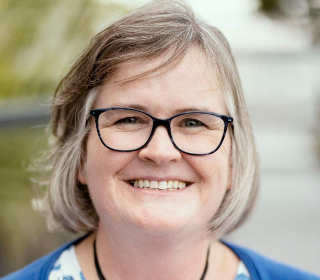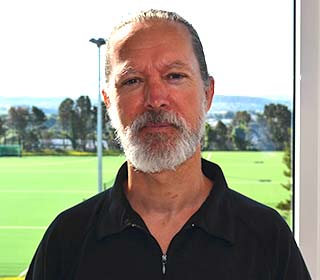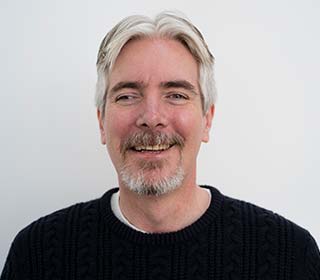
BA (Hons) Youth and Community Work
Inspire, encourage and nurture: make a difference to people's lives. Gain real-life experience of issues that can affect young people and their communities. Learn how to build relationships and use your growing expertise to inspire and enable the people you work with.

Entry requirements
Three A-levels at grades CCC-BBC
Or BTEC triple grades MMM - DMM
Access to HE Diploma accepted with credits in line with UCAS tariff point range
GCSE Grade C or 4 English Language or an acceptable equivalent qualification
T Level - Pass (C and above) - M
Applicants should have sufficient practical experience prior to commencement of the course (i.e. 100 hours).
We are committed to safeguarding and promoting the welfare of children and students. All students are expected to share this commitment and demonstrate consistently high standards of personal and professional conduct.
A DBS (Disclosure and Barring Service) check is required.
An interview is required.
We will accept 2 AS levels in lieu of one A level but must be accompanied by 2 A Levels or BTECs (General Studies is excluded).
UCAS points 96 - 112
UCAS code L530
UCAS institution code P63
Duration Three years full-time
Any questions?
Contact Charley, our Applicant Support Coordinator, if you have any questions. Email: applicantsupport@marjon.ac.uk and Charley will get back to you!
Course Summary
Through supervised professional practice placements and university-based study, you will learn how to work with young people and the communities in which they live to help them realise their potential. This delicate and expert approach will allow you to build relationships, helping to inspire and stimulate the people you work with to make positive changes in their lives.
BA (Hons) Youth and Community Work will develop your professional identity through your unique placements, theoretical knowledge and practical skills.
Placements are a significant part of the course and help you build the professional confidence and skills necessary to make a difference to other peoples’ lives. You can do your placement in three different environments, broadening your skills and experience as you progress. You may choose to do one of your placements overseas, for example, with our partners Helsinki Youth Service.
Each youth and community work student is unique, and therefore brings their own interests and skill sets to the profession. This course is all about fostering students’ individual passions within the field.
Why this course at Marjon?
UK and overseas work placements, for example with our partners Helsinki Youth Service
The tutors have personal experience of youth and community work, and are leaders in international research which means the course is informed by the most current thinking
Extensive placements - the equivalent of one year on placements over the three years - help you build the professional confidence and skills to make a difference to other peoples’ lives
Assessed and validated by the National Youth Agency to meet the professional qualification for youth work as set out by the Joint Negotiating Committee (JNC) for youth and community workers
Over 25 years’ experience in training outstanding youth and community professionals
Explore the current debates around how youth and community work is changing so you are ready to go out there and make a difference
Modules for this course
1st Year
Introduction to youth and community work
Interpersonal communication & relationship skills
Engaging with learning
Diversity, inclusion & social justice
Issues & interventions
Level 4 professional practice placement
2nd Year
Policy & practice
Youth & Community Practice in the Digital World
Developing & leading projects
Practitioner research
Level 5 professional practice placement
3rd Year
Organising, leading & managing practice
Practitioner research project
Changing practice: current controversies & dilemmas
Level 6 professional practice placement
My Professional Identity
Current students say...
Ania Jackowska
“The course is amazing, and you meet so many brilliant people. I really enjoy the opportunities to work with professionals and learning at university too. I’m developing my skills and my practice. The thing I most enjoy is the debates and discussion that we have in lectures. It is also a practical course, and you get first-hand experience. You learn from leading professionals and the support from lecturers is amazing. I’m more aware, I’m exploring ideas that I hadn’t realised were there.”
Natalie Knight
“I have enjoyed all aspects of the course so far and I have been able to produce work which I am proud of. I’ve been taught how to write academically and I’ve realised that reading around the subject increases your knowledge, which has given me confidence in both my work and placements. The lecturers are extremely helpful and aid you to achieve to your highest ability.”
Sally Wise
“Taking time to understand and explore why a person behaves in a certain way and how to react to this is something I explored throughout my degree. I am more confident in my own professional judgement and feel confident in managing and supervising volunteers. My three years at Marjon saw me grow as a person, and due to the support received from my lecturers, I leave feeling ready to take on new challenges.”
This course is perfect if you’re curious about
Is it more difficult being a teenager in the 21st century?
Are we really ready to listen to young people?
Are young people a cause of concern or a hope for the future?
Is society scared of or scared for communities in crisis?
What does the future look like to a 13 year old?
Have you got what it takes to make a difference?
“ I didn’t think I would ever go to Uni, the tutors were really good in giving me the confidence to go on and I did well, it’s one of the things I’m most proud of. Uni gave me the language to be able to have this job. Five years ago I’d never have thought I could have this job and that’s what’s going to Marjon gave me.”
See where our graduates are now
Sonya Williams
“I am over the moon to be working in community work, paid to do a job I dreamt of. I am working at the place I most enjoyed in my university placements, with a team of dedicated people who are proud to help homeless and vulnerable young people. My university placements showed me policy and procedure in action and I engaged with ‘the real world’ of community support. I can only convey my gratitude to my lecturers and peers to thank you for all your help. I would not have done it without you.”
Sonya is an Early Intervention Worker for The Zone.
Beth Cunningham
“As a mature student returning to education, I had little experience with working with young people. The course helped me develop many skills and increased my knowledge base, which helped me gain employment. Hands on experience and learning in placements throughout the course really prepared me for a career in youth work and allowed me to see just what the work entails. Supportive lecturers helped me develop my abilities and increased my confidence.”
Beth is a Professional Youth Worker for Plymouth City Council.
Stella Allen-Dobson
“I support young people to improve their overall health by reducing problematic drug and/or alcohol use and associated harms. The work is diverse, no two sessions ever the same. What I love most is building the rapport and therapeutic relationships critical for the meaningful work to take place and improve wellbeing and future outcomes. The degree has given a solid foundation to all of my practice and vital understanding of the theory behind the dynamics of therapeutic relationships.”
Stella is an U18’s Drug and Alcohol Worker.
What might you become?
The jobs market has changed significantly over the past few years and these are exciting times for graduates from this programme as the range and scope of employment opportunities has never been so diverse.
Opportunities exist across the sectors, in voluntary and charitable organisations, in the public sector, for example children’s services, schools and colleges, and in the private sector.
Recent graduates have forged careers in a range of settings including: school inclusion projects and alternative curriculum projects, in youth offending teams, in youth projects and detached projects, in housing and advice agencies and in housing projects.
Accreditation

National Youth Agency
This course is assessed and validated by the NYA to meet the professional qualification for youth work, as set out by the Joint Negotiating Committee (JNC).
How you’ll be taught and assessed?
How will you be taught?
The course has an extended academic year of three terms, enabling modules to be taught in a way that paces the assessment and learning load and allows students to develop skills without feeling overwhelmed. Teaching usually consists of one full day on campus, generally 6 hours a week, split between lectures and activity-based seminars, with some online study and 1-2-1 tutorials that can be arranged to suit the student’s needs, with a timetable to fit around other life commitments, like work and childcare.
Three professional practice placements totalling 800 hours take place in up to three different settings and are supervised by professional practitioners. In the final year, the practitioner research project enables students to specialise in an area of their choosing.
How will you be assessed?
Assessment methods are based on coursework (essays, reports reviews), presentations and the production of placement files that include reflective practice and self-assessment. Professional practice is assessed against the National Occupational Standards.

Tracy is excited to be leading this innovative and collaborative programme that supports the development of youth and community professionals across the south-west region.
Fees and funding
Fees UK students: £9,790 per annum
This fee covers your tuition and access to course-specific equipment and facilities, as well associated services including access to the library, study skills support, IT support, student support and wellbeing services and membership of the Student Union. There may be additional costs by course.
Funding available for this course
Our Student Funding Advisors offer confidential and impartial advice about your funding options.
Learn moreLecturers

Dr Tracy Ann Hayes
Academic Director of RKE (Education) and Associate Professor of Education
View profileTracy joined Plymouth Marjon University in September 2022, from the University of Cumbria, where she lived and worked for 10 years. Prior to this, she was based in the Midlands, where she was employed as training manager for an association of youth clubs. Her doctoral research creatively explored the relationship that young people have with the natural environment. She has published for public, practitioner and academic audiences, including BERA (British Educational Research Association) and IOL (Institute of Outdoor Learning). Tracy has a diverse range of practical and professional experiences through working in and researching with the voluntary and statutory sectors. She loves walking, gardening, reading – and playing outdoors.

Jon worked for 20 years as a youth worker before joining Marjon in 2003. He brings his knowledge and commitment to youth work to his teaching and research. He is particularly interested in the impact of policy on practice as well as theory and practice of youth and community work, as well as outdoor education. In 2018 Jon led a major research project into the value and impact of Youth Work on the lives of young people in Europe.

I have been a practising youth and community worker for 25 years. I began my career as a volunteer youth worker and progressed to full-time professional practice and management.
I spent the majority of my career working in the voluntary and community sector, where I developed a deep understanding of the challenges and opportunities therein, successfully navigating the continually changing professional landscape.
My various roles required me to develop skills in project management, staff management and development, professional supervision, funding management, and partnership working.
Working with young people and their communities has always been a passion of mine, and I profoundly believe in young people's right to be heard and valued, and to be a vital part of a thriving community and society.
More information
Five recent placement examples:
- Livewire - students work alongside experienced staff working with young people through music.
- SpaceShot - students experience centre-based and detached youth work in deprived areas.
- All Saints Academy - youth work in a formal education setting, supporting and mentoring young people.
- Seymour House - working with young people who are excluded from school or who are at risk of exclusion.
- The Zone - students experience working in Information & Advice; offering young people emotional support and information around issues such as housing, sexual health and mental health.
Find out more about studying BA (Hons) Youth and Community Work at Marjon

Discover Uni collects data about university courses in the UK. All universities publish Discover Uni data on their online course pages enabling you to compare similar courses at different universities.




